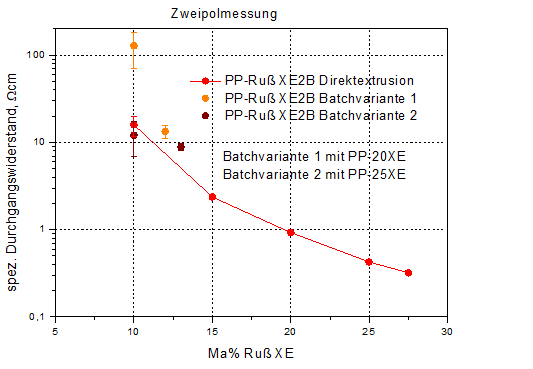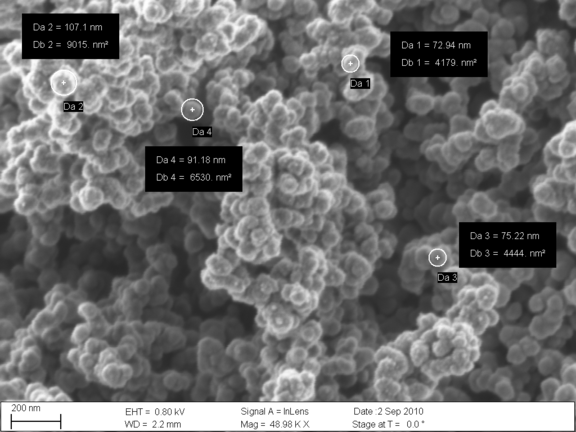The field of activity "electrically conductive plastics" comprises formulation and process developments of electrically conductive, in particular thermoplastically moldable polymers.
By modifying them with electrically conductive additives such as
- carbon nanotubes
- graphite
- carbon fibers
- conductive carbon black
- metal fibers or
- additive mixtures
composites with both antistatic (ESD) and highly conductive properties for EMC applications can be produced by extrusion.
The following advantages are achieved by using static dissipative plastics:
- Damage to components or their destruction in production is significantly reduced
- Targeted dissipation of electrical charges to avoid explosive discharges
- Lower weight in comparison
- Excellent weather resistance
- Protection against thermomechanical stress
- Low susceptibility to corrosion

